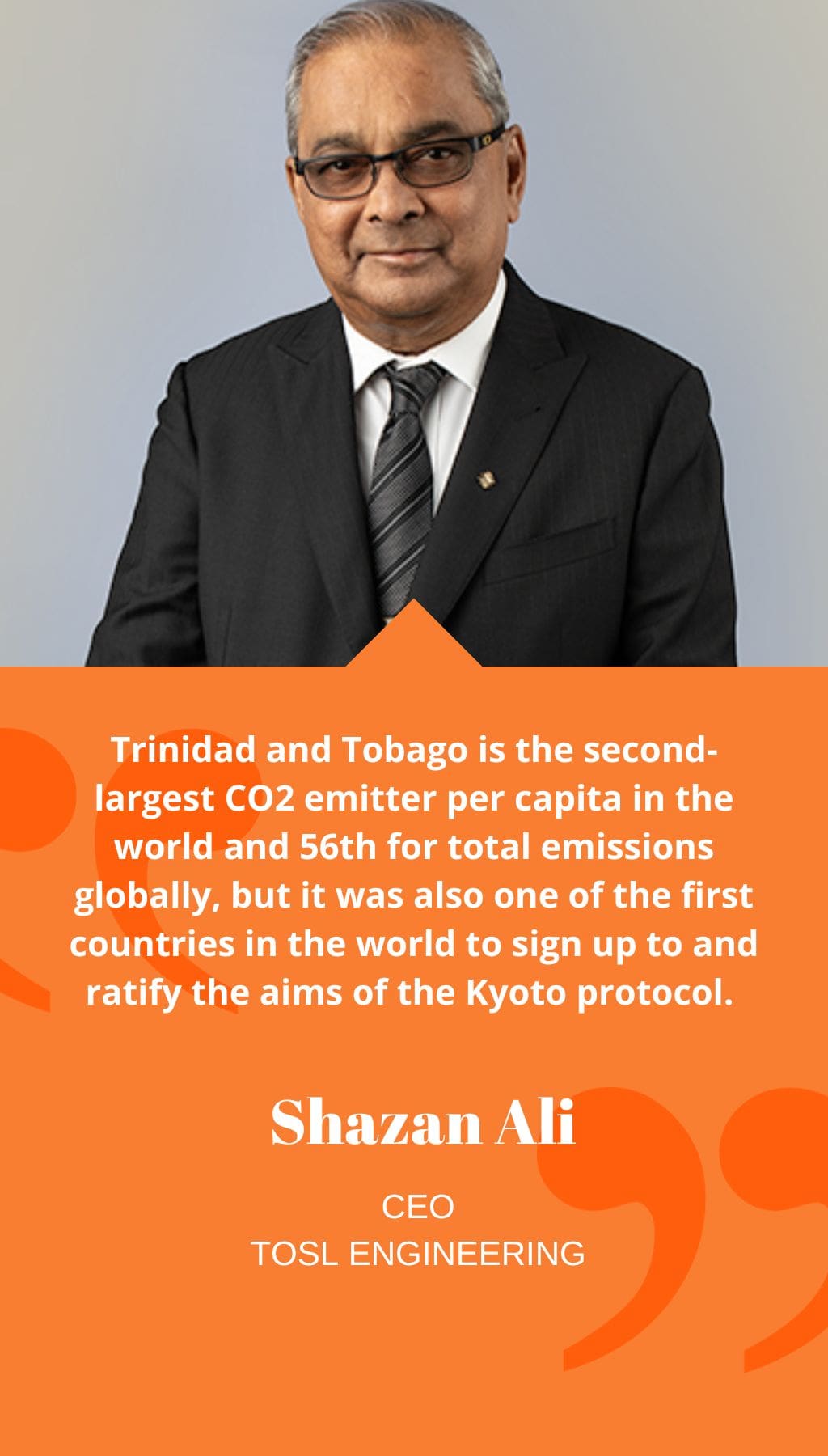
- Trinidad & Tobago | 27 April 2013

Could you please provide us with an overview of the services that the company provides today?
On the upstream side, TOSL covers equipment upgrades and modifications. We also have a production chemicals division working with Repsol, EOG, British Gas (BG) and many of the independent producers, as well as a services division mainly working with installation and maintenance of compressors and pumps. We also have perhaps the only A&I group in Trinidad, allowing us to do programmable logic controller (PLC) design installation. We write the manuals for PLCs, start off the equipment, and commission it before handing over to the operators. For our A&I group, we have an upcoming job for Trinmar on a new platform worth $200 million.
What advantages have you gained from having such a diversified service offering in recent years?
TOSL’s diversification of services and of clients across the energy value chain, from production to downstream and petrochemicals, meant that we were not significantly impacted by the recession in 2007 and 2008. Many other service companies in Trinidad had problems in the recession years, but we remained stable and went on to have two of our best years in 2010 and 2011. After the Macondo incident, all of the offshore producers have slowed down and are looking at their operational integrity. Although we have seen a decline in production within Trinidad and Tobago, engineering and related service firms have seen some upturn in business as a result.
We understand you are taking the lead in a number of clean development mechanism (CDM) projects in Trinidad; could you give us an overview of what these entail?
Trinidad and Tobago is the second-largest CO2 emitter per capita in the world and 56th for total emissions globally, but it was also one of the first countries in the world to sign up to and ratify the aims of the Kyoto protocol. Trinidad and Tobago’s previous governments have never really paid attention to emission rates; their main focus has always been maximizing the economic potential of hydrocarbons. However, the government is putting into place a low-carbon development strategy, and TOSL is taking a lead on this along with the Energy Chamber. We administer the CDMs by looking at energy efficiency and renewable energy options while also being part of the committee on the energy efficiency policy of the Ministry of Energy and Energy Affairs (MEEA). The CDM project we are currently developing with Petrotrin will reduce carbon emissions equivalent to 80,000 cars per year by capturing, processing, compressing, and feeding associated gas into the gas pipeline. We are also working with Krishna Persad and Associates (KPA) on using the vented CO2 for enhanced oil recovery systems on their onshore blocks, with potential for great success. Another project we are involved in is the National Adaptation Mitigation Actions (NAMA) concerned with renewable energy system on a regional level and part funded by the Green climate fund.
TOSL Engineering Limited is the leading local engineering firm in Trinidad. What would you say gives you a competitive edge in gaining the biggest contracts?
We realized quite early the advantages of certification, so we started our ISO certification in 1999 and currently have ISO 9000 2008. After the Enron Corporation scandal, we felt that trust and integrity would be increasingly important globally, so in 2004, TOSL Engineering Limited joined TRACE International, and we were the first Trinidadian company to do so. Joining TRACE International has been especially important for gaining contracts from US and UK firms.














